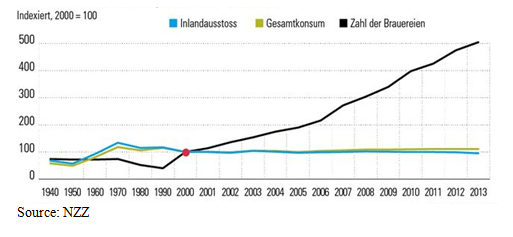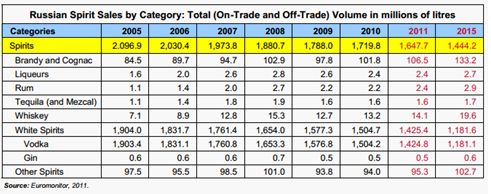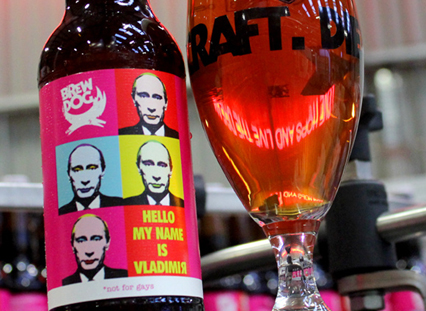That’s Russian hubris for you. In three years’ time, Russian Standard vodka’s owner, the billionaire Roustam Tariko, hopes to sell more vodka than Diageo.
Would you buy a beer from a band of wrinklies? Or a greasy burger from Mick Jagger? Rock stars are not exactly the types to endorse the, um, more folksy delights, are they? Yet, the British rock band Status Quo, led by sixtysomethings Rick Parfitt and Francis Rossi, have rolled out their own ale brand in February 2014 into the UK pub chain JD Wetherspoon.
With the Scottish referendum on secession from the UK scheduled for 18 September 2014, many commentators wonder how the 4 million Scottish voters will decide, considering that for months the campaign to keep Scotland British has been able to offer little more than dire warnings should those north of the border say yes to the Sexit (short for Scottish secession).
Everybody in the alcohol industry should be worried. Food crusaders have found a new target: sugar. A new and vociferous health lobby, the UK’s Action on Sugar, claims that sugar is “the new tobacco” and that its threat to health has been underestimated for years.
After the UK charity ActionAid accused SABMiller in December 2010 of tax dodging in some of its emerging markets, many thought the campaigners had scored a victory when western governments in 2013 promised they would put an end to this practice by forcing multinational companies to disclose what they earned and paid in taxes in all the countries they operate in.
Net profit at Dutch brewer Heineken fell by more than half last year to EUR 1.36 billion (USD 1.85 billion), the company reported on 12 February 2014, as growth in emerging markets had fallen short of expectations.
The latest online craze of “nekNomination” has doctors sounding the alarm around the world. Chugging beer is not a new concept, but nekNomination is a game that combines social media, peer pressure and drinking. It involves someone being filmed in underwear downing a beer in one, then nominating other people by name to do the same within 24 hours. The videos are posted and shared online.
It’s one of those rumours that seem too far-fetched to be true, but the Italian brewing industry has been abuzz with speculation for a few weeks that SABMiller will exit Italy and sell most of its Birra Peroni assets to AB-InBev.
Tu felix Austria? No longer. Like some of their German counterparts, two Austrian brewers have been engaged in some illegal hanky-panky. On 30 January 2014 the Austrian Cartel Court fined two small brewers for vertical collusion with the retailers. Total fines were EUR 252,000 Euro. Villacher Bier has to pay EUR 195,000 and Brauerei Schloss Eggenberg EUR 57,000, it was reported.
This is political activism with a twist. On the occasion of the 2014 Winter Olympics in Russia’s Sochi, the fearless Scottish brewer BrewDog has launched a beer in early February 2014 called “Hello, my name is Vladimir”.



